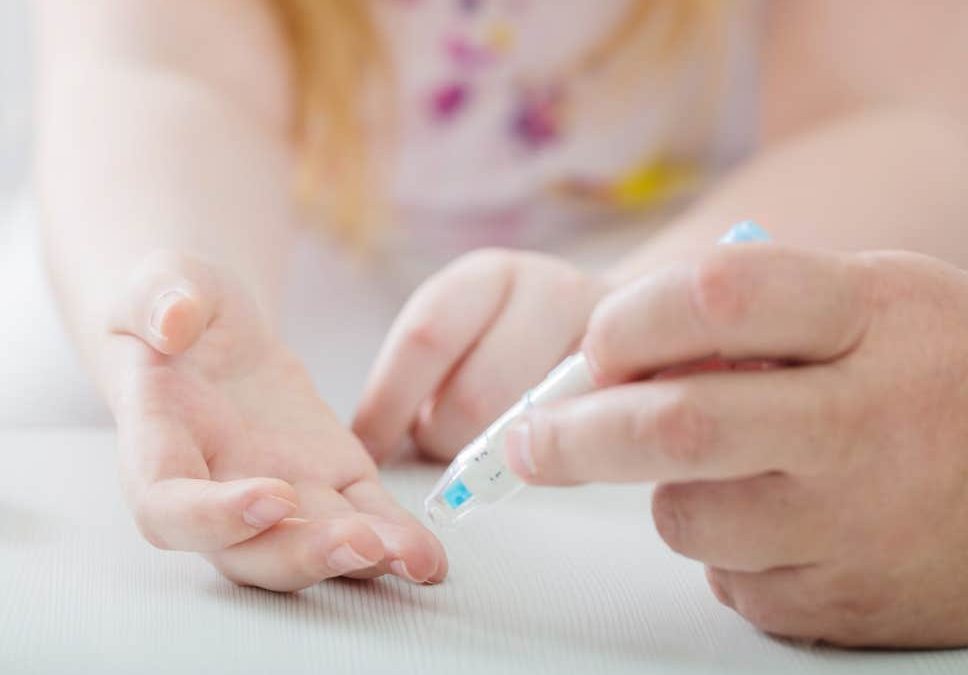A staggering 30 million Americans are living with diabetes in this day and age. A further 70 million have prediabetes, this translates to roughly 1 in 5 Americans who are at risk for diabetes. What’s worse is that diabetes has no cure, even as the hope for diabetes reversal is lurking on the horizon. The use of CBD for the treatment of diabetes is radical, to say the least. Can this really work? This article discusses the potential gains that diabetics may derive from incorporating CBD into the treatment regimen.
What Is Diabetes?
Diabetes is a disease of uncontrolled blood glucose levels. Excessive build-up of glucose in the blood will eventually lead to toxicity that may affect blood vessels, nerves, and vital organs. Insulin is a hormone that is produced by the pancreas and it removes excess glucose from the blood and stores it in cells.
Diabetes comes in two forms; type 1 and type 2 diabetes. Type 1 diabetes starts in childhood and is closely linked to genetic causes. In this type of diabetes, the pancreas fails to produce insulin. Hence this type of diabetes is frequently referred to as insulin-dependent diabetes.
Type 2 diabetes has a late onset and is closely related to dietary and lifestyle habits. In this type of diabetes, an individual builds up resistance against insulin. Hence, a person will have too much insulin at the start as the pancreas struggles to produce more and more insulin to regulate high glucose levels in the blood. Eventually, the cells that secrete glucose will get exhausted and the patient will start requiring supplemental insulin injections.
Most of the diabetes cases suffer from type 2 diabetes which is associated with insulin resistance. Insulin resistance may be triggered by chronic low-grade inflammation; while chronic inflammation as the result of glucose toxicity may, in turn, cause insulin resistance. This cycle explains the role of CBD in diabetes as you will see below.
Can CBD Help In The Treatment Of Type 2 Diabetes?
To be honest, adequate research is still lacking in this area. However, a few parallels can be drawn from existing research:
1. CBD and Blood Glucose
CBD has no effect on blood glucose levels, a 2016 research has shown. However, THC appears to lower blood glucose levels and could play a significant role in the treatment of diabetes. However, the research showed that CBD was well tolerated in patients suffering from diabetes.
2. CBD and Nerve Pain
Cannabidiol can reduce inflammation and nerve pain. One of the complications of diabetes is peripheral neuropathy. In one study where CBD was administered to rats with osteoarthritis, the effect was a reduction in pain and nerve damage. This was achieved through the anti-inflammatory effects of CBD. In this case, CBD can be used to minimize the chances of diabetes complications.
Another study showed that CBD can reduce chronic inflammation and neuropathic caused by glucose toxicity. Both of these studies were conducted on mice.
3. CBD and Inflammation
Perhaps this is the most important link between CBD and diabetes-inflammation. A number of studies have shown a positive relationship between chronic inflammation and insulin resistance. One study concluded that “Pro-inflammatory cytokines can cause insulin resistance in adipose tissue, skeletal muscle, and liver by inhibiting insulin signal transduction.”
Other studies have also shown that insulin resistance can trigger chronic inflammation. It appears that type 2 obesity is closely linked to inflammation.
Recent research has shown that cannabinoids have a significant role to play in reducing and inhibiting inflammation. Cannabinoids, such as CBD, activate cannabinoid receptors in the body. Animal and human studies have shown that the endocannabinoid system regulates the immune system through CB1 and CB2 receptors. Cannabinoids suppress inflammation and consequently reduce disease symptoms. This has been demonstrated in the treatment of autoimmune disorders such as multiple sclerosis, rheumatoid arthritis, colitis, and diabetes.
4. Diabetes prevention
As much as CBD does not play a direct role in lowering blood glucose levels, one study has shown that it is effective in preventing diabetes.
So far there are no clinical studies that have investigated the role of CBD in preventing diabetes. However, the study mentioned above showed that non-obese mice had a substantially lower risk of developing diabetes if treated with CBD.
This gives much hope for the big cohort of Americans with prediabetes. However, researchers need to work fast to validate these findings by generating significant clinical evidence.



